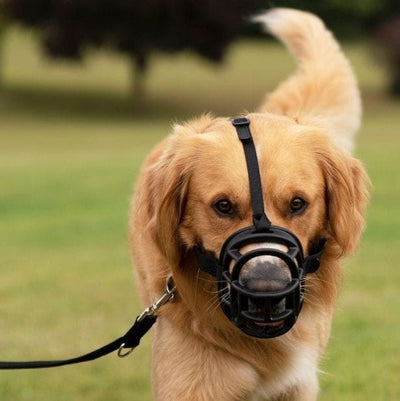Dogs are known for their love of napping, but how much sleep do they really need? The answer varies depending on the dog's age, breed, and activity level. In this article, we'll explore the science behind how much sleep dogs need to stay healthy and happy.
Understanding the Sleep Needs of Different Dog Breeds.
Different dog breeds have different sleep needs, just like humans. For example, larger breeds like Great Danes and Mastiffs tend to sleep more than smaller breeds like Chihuahuas and Jack Russell Terriers. This is because larger dogs have slower metabolisms and need more rest to recharge their energy levels-Good to know!
Additionally, working breeds like Border Collies and German Shepherds may need more sleep than lap dogs because they have higher activity levels and require more rest to recover. It's important to understand your dog's breed and individual needs to ensure they are getting enough rest.
Factors That Affect a Dog's Sleep.
There are several factors that can affect a dog's sleep, including age, health, and environment. Puppies and senior dogs may need more sleep than adult dogs, while dogs with health issues may have trouble sleeping due to discomfort or pain.
Additionally, a noisy or uncomfortable sleeping environment can disrupt a dog's sleep, leading to fatigue and irritability. It's important to create a comfortable and quiet sleeping space for your dog to ensure they are getting the rest they need. This can include a comfy dog bed or a secure and comfy dog crate.
How Many hours of Sleep does a Dog Need?
While this is not an exact science, the amount of sleep a dog needs depends on their age, activity level, and breed.
Generally, adult dogs need around 12-14 hours of sleep per day, while puppies and senior dogs may require more.
Some breeds may require more sleep than others. For example, larger breeds tend to sleep more than smaller breeds. Additionally, dogs that are more active during the day may require more sleep to recover.
It's important to note that while dogs do sleep a lot, they also need regular exercise and mental stimulation to stay healthy and happy.
Signs That Your Dog is Not Getting Enough Sleep.
Just like humans, dogs can suffer from sleep deprivation. If your dog is not getting enough sleep, they may exhibit signs such as excessive yawning, lethargy, irritability, and difficulty focusing. They may also have trouble learning new commands or behaviours. If you notice any of these signs, it's important to evaluate your dog's sleeping environment and schedule to ensure they are getting the rest they need to stay healthy and happy.
Studies have shown that the amount and quality of a dog's sleep can be influenced by various factors, including their environment and behaviour. By understanding the importance of sleep for dogs, we can gain insight into their behaviour and cognitive abilities. Research has shown that dogs can be valuable models for studying sleep-related cognition, which could lead to a better understanding of both dog and human physiology. However, more research is needed to fully explore the relationship between sleep and dog behaviour.
Why is it Important for Dogs to Sleep in a Comfortable Dog Bed?
There are several reasons why it's important for dogs to sleep in a comfortable dog bed:
-
Joint health: A n orthopedic dog bed can provide support for your dog's
joints, especially for senior dogs or dogs with joint issues. A good quality bed can help prevent discomfort, pain, or worsening of existing conditions.
-
Temperature regulation: Dogs can regulate their body temperature by panting and sweating through their paw pads. However, a comfortable bed can help provide insulation during cold weather or help with air circulation during warmer weather.
-
Comfort and security: Dogs are den animals, and having a comfortable and secure place to sleep can provide them with a sense of comfort and security. This can help reduce stress and anxiety, which can lead to better overall health and behavior.
-
Hygiene: Having a designated bed for your dog can help contain their shedding, dirt, and dander in one place, making it easier to keep your home clean.
Overall, providing a comfortable dog bed for your furry friend is essential for their physical and emotional well-being. It's important to choose a bed that is the appropriate size and offers the right amount of support for your dog's specific needs.
Tips for Creating a Sleep-Friendly Environment for Your Dog.
Creating a sleep-friendly environment for your dog is essential to ensure they get the rest they need. Start by providing a comfortable bed in a quiet, dark, and cool room. Avoid placing the bed in high-traffic areas or near sources of noise, such as the TV or a busy street.
Additionally, establish a consistent sleep schedule for your dog, and make sure they get plenty of exercise during the day to help them sleep better at night.
By creating a sleep-friendly environment for your dog, you can help them stay healthy and happy for years to come.
The Importance of Consistency in Your Dog's Sleep Routine.
Just like humans, dogs thrive on routine and consistency when it comes to their sleep schedule. Establishing a consistent sleep routine for your dog can help them fall asleep faster and stay asleep longer.
This means going to bed and waking up at the same time every day, even on weekends. By sticking to a consistent sleep routine, you can help your dog get the rest they need to stay healthy and happy.
© weknowpets 2023









